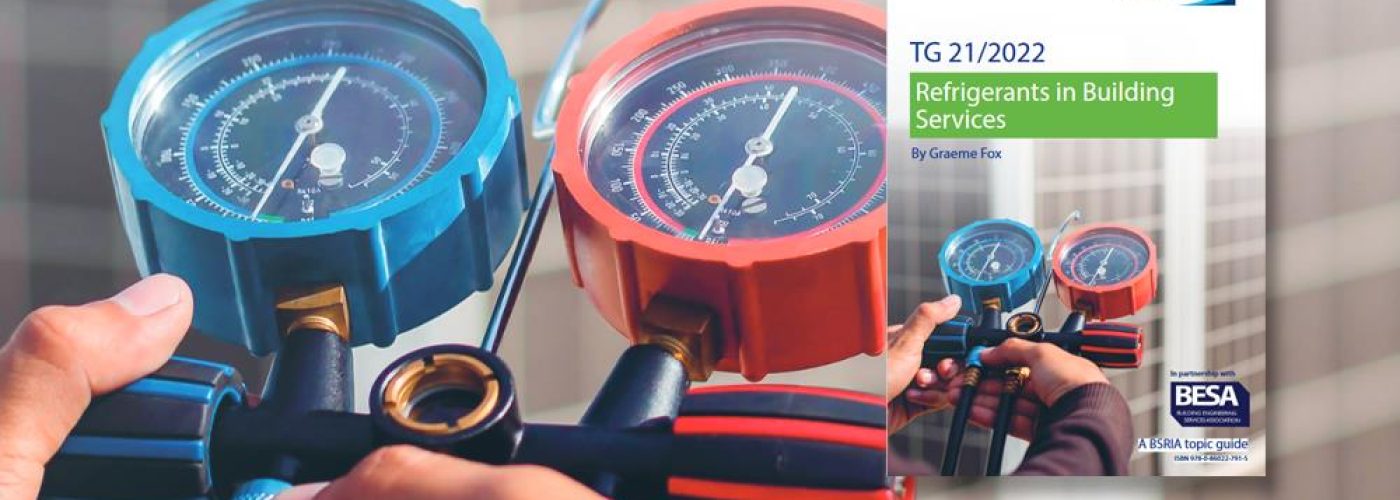The Building Engineering Services Association (BESA) has joined forces with the sector’s leading research body BSRIA to produce a comprehensive free guide for the use of refrigerant gases in building services.
The new publication has been written by BESA’s head of technical Graeme Fox and is available now for free download from the BSRIA Bookshop.
It has been prepared to help consultants, specifiers, facilities and project managers, installers and end users deal with a period of considerable change for the industry as legislation and tightening environmental and performance targets combine to increase restrictions on how refrigerants are used and what gases will be allowed in the future.
The increased use of heat pumps and greater focus on climate change mitigation, including the need to address overheating in buildings, means industry professionals are faced with greater design and installation challenges and opportunities to adopt new practices, which are covered in the guide.
‘Refrigerants in Building Services’ (TG 21/2022) includes information and advice on:
* Current environmental and health and safety legislation affecting refrigerants
* Forthcoming changes to legislation
* Energy efficiency issues
* Commonly used refrigerants
* Applications including DX coils, chillers, split systems, VRF/VRV systems and heat pumps
* Sources of further information.
The two bodies were keen to work together to promote best practice across the sector and to fully explain the implications of stringent cuts to the use of HFCs and other bans as part of proposals to strengthen the European F-Gas regulation.
The UK continues to ‘mirror’ the regulation, despite its departure from the EU, and the latest proposals from the European Commission include an acceleration of the current phase down process in 2024. This could be followed by a ban on the use of HFCs with global warming potential (GWP) of 150 and above in many split systems and heat pumps from 2027.
“The timing of this guide is crucial,” said Fox. “There is so much change going on in the industry and there is a danger that people will be bamboozled by all the current and proposed legislative changes. If people are confused, they can end up simply ignoring their obligations with extremely unfortunate consequences.
“We were, therefore, very keen to work with BSRIA on a document that would be both informative, practical and relevant to building engineering systems designers.”
Fox added that the new guide reinforced the importance of people being properly trained and holding up-to-date technical and health & safety qualifications to work with both traditional and alternative refrigerants. This is particularly important because many HFC replacement refrigerants are mildly flammable, he pointed out.
It also reminds end users that they should only employ F-Gas registered firms to remain legally compliant and to achieve their environmental goals.
BESA manages the UK’s primary F-Gas register REFCOM and offers F-Gas Awareness training via its online Academy.
BESA and BSRIA will also be jointly presenting a webinar on May 3rd featuring Graeme Fox and BSRIA publications manager, David Bleicher. This will be an opportunity to learn more about the new guidance, understand its wider context and why it is such a timely and important publication.
To book your webinar place click here www.theBESA.com





